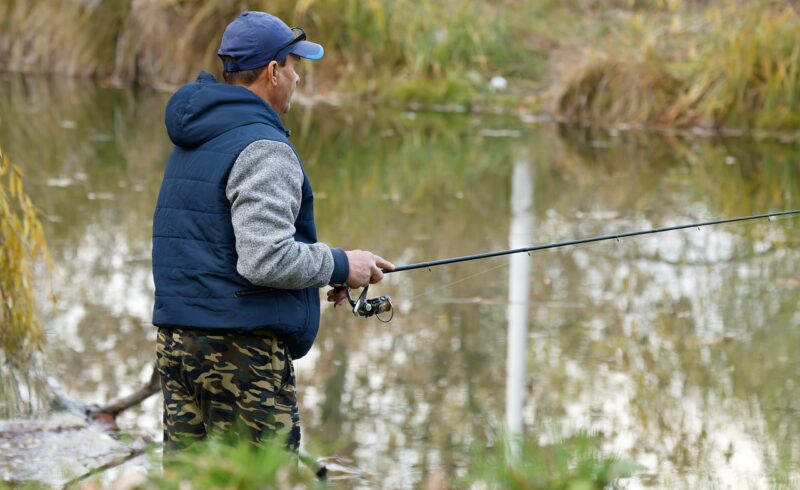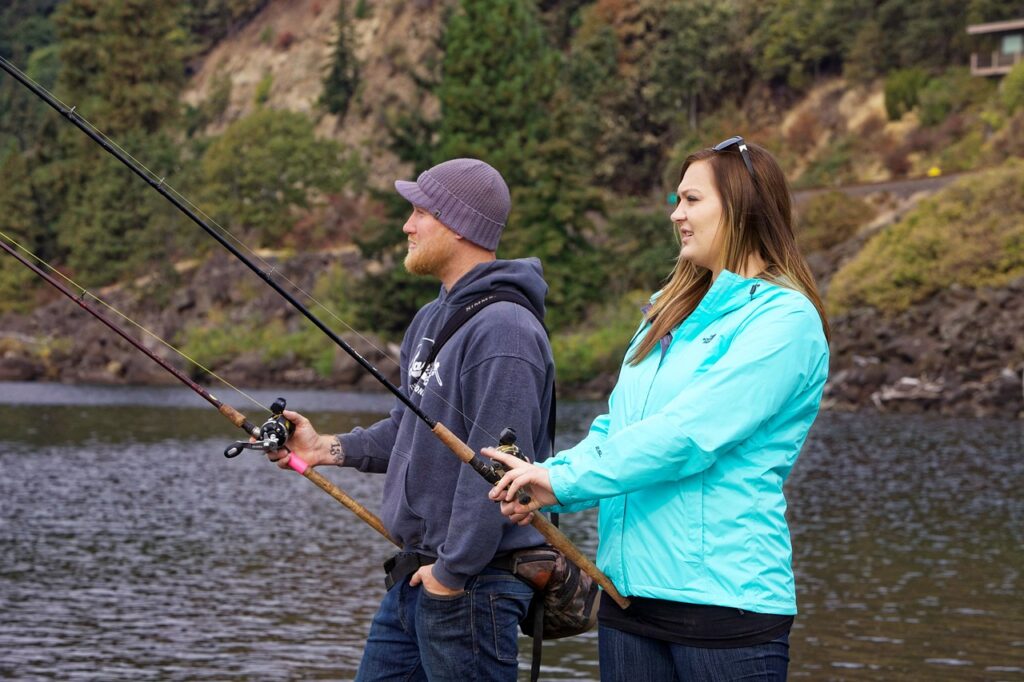
There’s nothing more satisfying than standing by the edge of a pond or a lake, surrounded by fishing gear and tackle, slinging a line into the water and waiting for a fish to bite.
I can still remember when I learned to cast a fishing line; I was no older than seven. My dad handed me a short rod and took me out into the backyard to practice throwing the line out over my shoulder, then releasing the reel at just the right moment so that the line flew out in front of me and landed on the grass.
Once I got the hang of the cast, we got out a little plastic bait-and-tackle box full of oddly colored rubber worms and small hairy flies and other bits of colorful plastic and wire and gel. I never learned the right knot to tie through the metal eyes on the artificial bait. And though I am sure it was explained to me over and over again, I have willfully forgotten how to hook a real worm. But I distinctly remember the fun of choosing my bait from the tiered tackle-box and casting it out as far as I could in front of me.
All Kinds of Locations
Fishing was a family activity for me. My family always practiced catch-and-release; we did it for fun, as a bonus activity on camping trips or vacations. Sometimes we’d take the rods and tackle box out to the pond behind my grandparents’ house and fish there — I used a fake fly on a regular fishing-rod, which was unconventional, but it worked better than anyone else’s normal bait. At a family reunion, I fished for an evening in a small lake on my great-aunt’s ranch out in Texas. One time, my dad and I hooked up a rod to the back of our little kayak as we paddled through a saltwater inlet and the dragging bait attracted a skate.
Problem Solving
 Fishing requires patience, but it isn’t passive. You have to cast out the line over the water again and again, reeling it in slowly and hoping to feel the tug that tells you you’ve got something.
Fishing requires patience, but it isn’t passive. You have to cast out the line over the water again and again, reeling it in slowly and hoping to feel the tug that tells you you’ve got something.
It also requires ingenuity. Sometimes fish won’t take the bait you’re offering them. Other times, you’ll get your line caught on something, and have to figure out how to untangle it. But for the most part, it is a kind of repetitive simple motion, coupled with hope, that draws you into a mesmerized state of calm anticipation.
Fishing with others is the most fun; you can vie with each other to catch more fish, help each other tie knots and untangle lines, and– most importantly– rely on responsible adults to ensure that you don’t get hooked, and that you safely release the fish you catch. But even though my only fishing experience has been with my family, I learned to see the appeal of standing alone on a shore and casting a line out again and again, practicing patience and ingenuity and learned independence, totally content with only the fish for company. It’s a wonderful hobby, and if you release your catches, it’s more of a contest between you and the fish, between you and yourself. Someday soon, I will revisit those childhood memories and take my fishing rod out to new waters.










